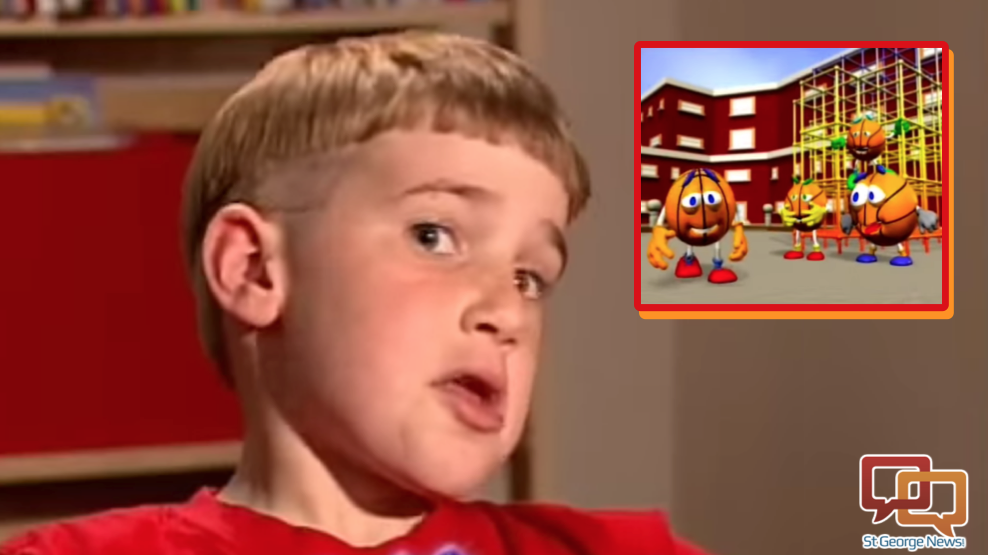FEATURE – Growing up isn’t easy and at times is extremely uncomfortable. It can be significantly worse for a child who stutters, particularly when they have so much to say. A 12-minute DVD, “Stuttering: For Kids, By Kids,” can help, showing kids talking to other kids about stuttering, dealing with teasing and sharing what bothers them the most about stuttering. Most importantly, it lets them know they are not alone.

This video features narrator “Swish,” an animated basketball character developed by Purdue University students, and his friends. Using cartoon animation, the video shows kids who stutter coming together to help other kids with the same condition.
Many children who stutter have never met others who struggle with the same disability. In this DVD from the Stuttering Foundation they meet kids who recount how they handle challenges such as teasing, speaking out in class and how they can teach others.
Matthew, 10, said, “It’s no big deal,” according to a news release about the video from The Stuttering Foundation. Kate, 9, however, worries about talking, what is going to happen next and whether or not she’ll stutter. Arianne, 14, said, “The hardest part about stuttering is to get through it and to stay in there when you’re stuck.” Umang, 12, agreed, saying: “Sometimes it gets kind of annoying when you want to say something and you can’t. I also get worried what other people might think if I do stutter and wonder if I’ll be able to get out of my blocks and things.”
“Stuttering: For Kids, by Kids” may be viewed top of this report.
Click play  above.
above.
The video is also available through the Washington County Library System online, can be checked out from two Washington County branches: St. George and Enterprise, and can be viewed online at The Stuttering Foundation.
About stuttering
Few conditions are more misunderstood than stuttering, despite the fact that more than 70 million people worldwide stutter, roughly 1 percent of the global population. Three million of those people reside in the United States, and almost 1.5 million of them are children having gone through a stuttering period lasting six months or more. Three-quarters of those children recover from stuttering by late childhood, but that still leaves one-quarter of them that don’t – which means approximately 375,000 kids continue to stutter.
Stuttering is a neurologically based disorder which impairs an individual’s ability to time and sequence the underlying movements necessary for speech, according to researchers at The Stuttering Foundation.
Childhood stuttering, also referred to as speech dysfluency, is common among young children as a normal part of learning to speak. In some cases, children may stutter when their speech and language abilities aren’t developed enough to keep up with what they want to say.
Most stuttering begins between the ages of 2 and 4 years, and most of those affected outgrow developmental stuttering in early childhood. However, 5-10 percent of these children experience lifelong incidence of stuttering, according to a 2014 convention speech handout for the New Jersey Speech-Language-Hearing Association by Dr. Joe Donaher, academic and research program coordinator with the Center for Childhood Communication and the Department of Speech-Language Pathology at The Children’s Hospital of Philadelphia.
Stuttering tends to run in families, Donaher’s handout states, and studies have shown that 70 percent of children who stutter have a family member that does as well.
Boys are four times more likely to stutter than girls, Donaher wrote, and the onset for both tend to occur during rapid language development. Also, the younger the child is when they begin stuttering the higher chance they have of overcoming it in early childhood.
Research suggests that early intervention is recommended. If children who stutter receive appropriate therapy at an early age, it is possible that most will not become adult stutterers. Experts now recommend that children who stutter begin speech therapy as early as age 3 or 4, which can prevent adult stuttering that can last a lifetime.
The Stuttering Foundation is a valuable source for parents and those actively involved in working with children who stutter. It offers an array of free online resources, services and support videos, and other helpful tools for those involved in clinical practice and academic research and are board recognized specialists in stuttering.
Resources
Email: [email protected]
Twitter: @STGnews
Copyright St. George News, SaintGeorgeUtah.com LLC, 2015, all rights reserved.